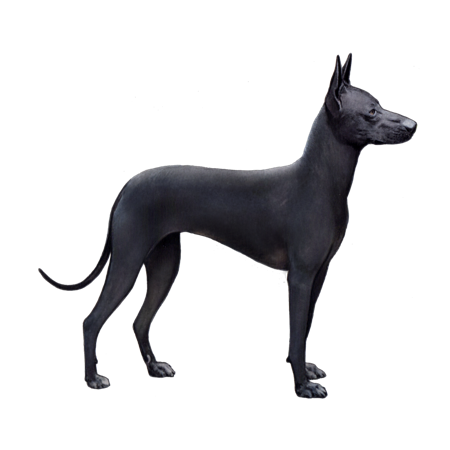
Russell Terrier
The Russell Terrier is a cheerful little breed that packs plenty of spunk and personality into its pocket-sized body. These intelligent, cute, and charming dogs are feisty, fearless, and fun to be around.
Interested in discovering if your dog is a Russell Terrier?
Check out Wisdom Panel's DNA tests.

Russell Terrier Traits
General Appearance
The Russell Terrier is a strong and agile working dog that sports a medium-sized flexible body. Its effortless movements complement a lively, intelligent expression.
Coat and Colouring
Russell Terriers can have three coat types: smooth, rough, or broken. The three types are all predominantly white with tan, black, or brown markings.
Distinctive Physical Traits
Dark, almond-shaped eyes, V-shaped ears, and a bright expression set the Russell Terrier apart from other breeds.
Russell Terrier Temperament
Performers at heart, Russell Terriers can become skilled at tricks and love entertaining people. But they may be undistractable once engaged in an activity they enjoy.
Despite their reputation for being good family dogs, Russell Terriers can develop small dog syndrome (when little dogs think they're the boss). Without proper training, they might constantly bark, nip at strangers, or challenge their owners. Firm and consistent correction should nip this problem in the bud.
Overall, Russell Terriers make wonderful family pets and do well with children—provided the young ones know how to behave around dogs.


Russell Terrier History
Russell Terriers are also commonly referred to as Jack Russell Terriers. They're named after Reverend John Russell, who developed the breed to hunt fox during the 1800s. These small-bodied dogs helped drive foxes from their lairs, giving the hunters easy access.
In the mid-1990s, many children learned about the breed from Wishbone—a children's show centered around an inspirational Russell Terrier. A clever and adventurous pup, Wishbone dreamt about playing the lead character in stories of classic literature.
Russell Terrier Care
Nutrition
Russell Terriers need to eat high-quality dog food that's appropriate for their life stage (e.g., puppy, adult, senior). To keep them at a healthy weight, monitor food portions carefully. And be sure to take treats into account when tracking their daily calorie intake. As a guideline, treats should make up no more than 10% of a dog's calories.
Grooming
The Russell Terrier's spirited look requires little maintenance. You can keep the smooth coat in top form with a weekly spruce-up using a hound glove or soft brush. Similarly, a weekly brush or comb for dogs with rough or broken coats will ensure they look their finest.
Monthly nail trimming is also important, along with a weekly check of your dog's ears for wax buildup or accumulated debris.
Exercise
Russell Terriers aren't the best dogs for inactive lifestyles. These peppy pooches enjoy getting out and moving with the family. Think hiking, biking, walking, and playing games.
The breed requires plenty of energetic pursuits that will exercise both its body and mind. Russell Terriers seem to have an almost boundless supply of get-up-and-go. As such, they enjoy fetching, agility, flyball, and more.
Training
Russell Terriers have a strong prey drive, so they should always be on a leash when out and about. This will help control your dog's urge to bolt and chase the neighbor's cat, a small animal, or another dog. Early socialization can also help curb any problems that might arise from this impulse.
Because the Russell Terrier is an extremely intelligent breed, boredom can easily set in if training sessions are not engaging. So, keep it interesting!

Russell Terrier Genetic Health Conditions
-
Congenital Myasthenic Syndrome (Discovered in the Jack Russell Terrier)
Congenital Myasthenic Syndrome (CMS) is a neuromuscular disorder. Affected dogs suffer from exercise intolerance and collapse after 5-30 minutes of exercise.
-
Hyperuricosuria
Hyperuricosuria (HUU) is a condition that predisposes affected dogs to the formation of urinary stones, such as kidney or bladder stones.
-
Lamellar Ichthyosis
Lamellar Ichthyosis is a skin disorder causing severe thickening and scaling of the skin, leading to secondary bacterial and yeast skin infections.
-
Primary Lens Luxation
Primary Lens Luxation (PLL) is a condition that can cause the lens of the eye to become loose and eventually displace. The disorder is caused by degeneration of the fibers that hold the lens in place.
-
Severe Combined Immunodeficiency (Discovered in Russell Terriers)
Autosomal Recessive Severe Combined Immunodeficiency (ARSCID) is a severe immunodeficiency disorder discovered in Jack Russell Terriers, that leaves affected dogs prone to infection.
-
Spinocerebellar Ataxia (Late-Onset Ataxia)
Spinocerebellar Ataxia also known as Late Onset Ataxia (LOA) is a disease of the nervous system characterized by uncoordinated movements and impaired balance.
-
Spinocerebellar Ataxia with Myokymia and/or Seizures
Spinocerebellar Ataxia with Myokymia and/or Seizures (SAMS) is a disease of the nervous system characterized by uncoordinated movements and impaired balance. This particular form may present with muscle twitching and seizures.
Knowing if your Russell Terrier is a carrier or at-risk for these conditions can help you and your veterinarian plan for your pup's lifelong care. With Wisdom Panel™ Premium, you can get results for over 200 genetic health tests.
Breed Group
Terrier
The Terrier Group ancestors were bred to hunt and kill vermin. They are often characterized as feisty and energetic dogs whose sizes range from fairly small to much larger.





















































